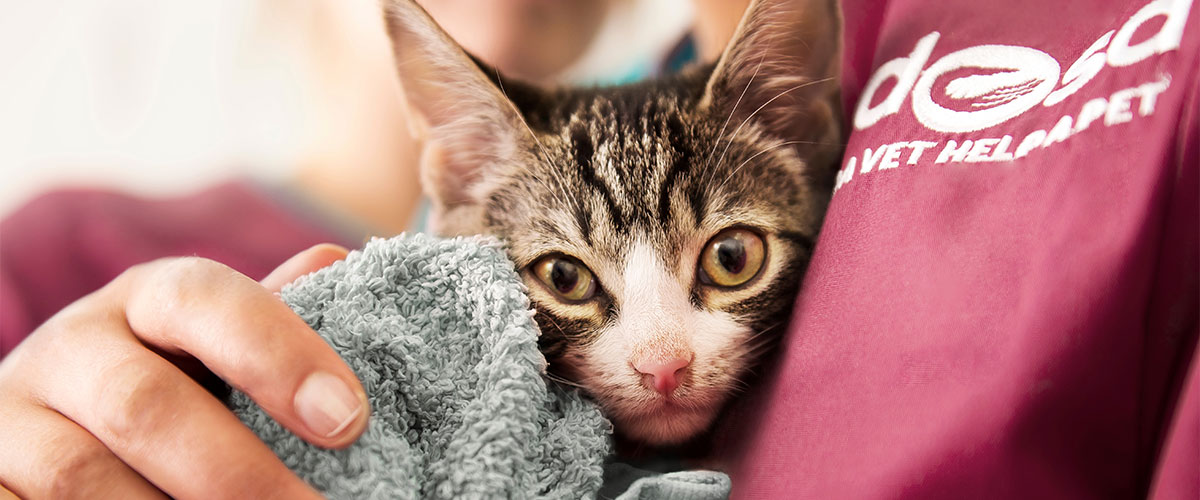Is my cat drinking and weeing too much?
Overview
- Is your cat drinking and/or weeing more than usual?
- The two symptoms usually come together because the more a cat drinks the more they need to wee, and the more they wee the more they need to drink.
- There are many possible causes for excessive drinking and peeing ranging from a urine infection to diabetes.
- If you think your cat is drinking too much, take them to your vet (with a urine sample and a note of how much they drink if possible).
- Never withhold water from your cat.
Is your cat drinking and peeing too much?
Cats get most of their fluid from their food (especially if they mainly eat wet food), so it’s quite common to only see them drinking now and again. If you suddenly start noticing your cat drinking more than they usually do, it may be a sign that something is wrong. Telltale signs often include:
- Being thirsty all the time
- Their water bowl emptying quicker than usual
- Drinking from places that they normally don't (taps/the toilet/sinks/the bath)
- Drinking so much that they vomit
- Visiting their litter tray more often or peeing in larger volumes
- Weeing in the house
Contact your vet for an appointment if your cat has any of these symptoms, it will be very helpful if you can take a urine sample along, and a note of exactly how much your pet drinks in a 24 hour period.
Causes
There are many possible causes for increased thirst and peeing, some of the most common include:
- A urine infection
- Kidney disease
- Diabetes
- Hyperthyroidism
- High temperature (fever)
- Medications that cause increased thirst e.g. steroids.
When to contact your vet
Always take your cat to see your vet if you think they are drinking or peeing too much and if possible, take a urine sample and a note of how much your cat is drinking in a 24 hour period.
Published: January 2021
Did you find this page useful?
Tell us more
Please note, our vets and nurses are unable to respond to questions via this form. If you are concerned about your pet’s health, please contact your vet directly.
Thank you for your feedback
Want to hear more about PDSA and get pet care tips from our vet experts?
Sign up to our e-newsletter
Written by vets and vet nurses. This advice is for UK pets only. Illustrations by Samantha Elmhurst.

 Video found at youtu.be/rZmoiLXfDNY
Video found at youtu.be/rZmoiLXfDNY
 Video found at youtu.be/xTLRKmNvPzo
Video found at youtu.be/xTLRKmNvPzo
